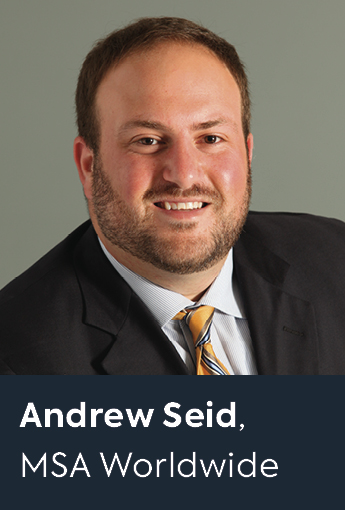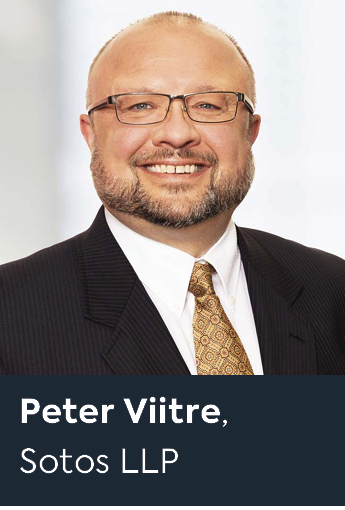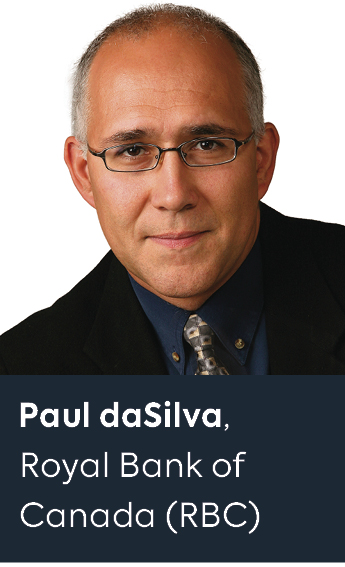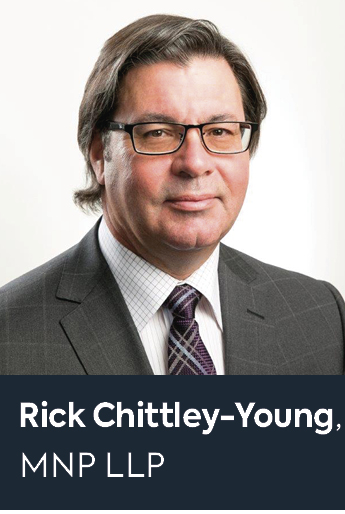Franchise experts weigh in on what you need to know when taking the big step into business ownership
You’re ready to own your own business and have found a concept you love and want to invest in. But how do you take the next step?
Franchise Canada reached out to four experts to help demystify the process of buying a franchise. Below, find out how to make your entrepreneurial ambitions a reality, with the help of a franchise consultant, franchise lawyer, franchise financing expert, and franchise accountant.
Your franchise fit
The question of which franchise brand is right for you can be overwhelming—after all, there are franchise opportunities in just about every industry sector and across a wide range of investment price points.
According to consultant Andrew Seid of MSA Worldwide, the most important element to consider is not the details of the product or service but whether that franchise is the right cultural fit for you.
“Culture is key,” says Seid. Franchisees should make sure a potential franchisor’s culture prioritizes three things: “open communication, honesty, and collaboration.”
“Of course, all the business elements need to make sense—return on investment (ROI) opportunity; what investment level you can afford; what fits your skill set; etc.—but if the franchisor’s culture does not prioritize those three things, you likely won’t want to sign up,” he says. Because franchisees are committing to following a system, trust in the franchisor is an important element. “Franchisees need to trust that the franchisor is making decisions with the best interests of the brand in mind. Being able to collaborate and be a part of the discussions that go into those decisions can be key in building that trust.”
When vetting a franchisor, along with determining whether the business model is profitable, Seid recommends asking “how they evaluate success, both for the brand as well as individual franchisees.” The answer should revolve around franchisee success and continually improving the unit economics for franchisees in the system. “If their focus is on how many franchisees they’ve sold and how fast the brand is growing, that would be a red flag for me,” he says.
Seid also recommends speaking with as many current and former franchisees of the brand as possible before making your final decision. “Not only can you gather important financial and other hard data, but you’ll be able to get a better understanding of the culture, communication, and other soft skills that the franchisor may or may not possess.” He adds, “Franchisees who have exited a system are some of the best validators for a brand. If they can tell you that even though they might not have had the best success as a business, that they were treated fairly and the franchisor worked with them to help them leave the system with grace and dignity, that is the type of franchisor I want to be aligned with.”

Legal concerns
When buying a business, it’s important to consult a legal professional. For prospective franchisees, a franchise lawyer’s specialized knowledge is essential to help demystify the Franchise Disclosure Document (FDD), a document provided by the franchisor to break down the various elements of the business.
This document is “the second-best source of information about the franchise opportunity” you can get, says Peter Viitre, partner at Sotos LLP. “I say second best because, really, the best way to find out what a franchise system is all about is to talk to existing and former franchisees.” Speaking with franchisees yields crucial information about the culture of the system as well as earning potential, which—because stating earning claims is optional for the franchisor—may not be part of the FDD.
The FDD “can be daunting,” Viitre notes, “so you really want to get a good lawyer and a good accountant to go through it with you and highlight the things you need to know.” Going into business, he says, is all about risk: “Identifying the risks that are there, that you’re going to need to deal with by either mitigating them, working around them, by insuring against them, or at least understanding them so that you can figure out whether it’s a good deal for you.” Some risks may include signing with a new or emerging franchisor, or a foreign franchisor that hasn’t opened a location in Canada yet. “All of those things can add risk to the proposition, and you’ve got to balance that against your own skills and against the amount of money you’re being asked to pay for the privilege of going into the system.”
He adds, “Only your own business advisors and legal advisors can help you make that assessment.”
In order to finalize a franchise decision, a new franchisee has to sign a franchise agreement, which sets out rights and obligations of both franchisee and franchisor. Viitre also recommends enlisting a franchise lawyer’s help to make sure you understand everything about this document and any other attached, relevant documents such as a personal guarantee or general security agreement.
While it may not be top of mind for new franchisees, Viitre also stresses the importance of thinking about an exit strategy from the moment you begin to consider buying your business. This includes discussing personal liability in case of a default, but also considering succession planning.

Franchise financing
Another expert it’s crucial to consult with when determining whether to make a franchise investment is your bank. Your advisors can help you determine financing requirements, the cost of your investment, and all the expenses included in running a franchise.
To understand the different financing options and programs available, we turned to Paul daSilva, national VP of franchise financing for RBC.
“Banks want to know, what is the total cost of the project, and how will you finance that cost?” says daSilva. “For franchisees getting into buying a franchise, you want to try and cover as much of your investment as possible.”
Most first-time franchisees take advantage of a Canada Small Business Financing Loan (CSBFL), daSilva notes. This government-sponsored loan program offers up to $1 million in loans (including $500,000 for equipment, leasehold improvements, intangible assets, and working capital, of which $150,000 for intangible and working capital). A personal guarantee is no longer an act requirement for this loan, but most banks will still ask for a guarantee, daSilva notes—RBC asks for 25 per cent.
However, “there are lots of financing options!” daSilva adds. Beyond the CSBFL, first-time franchisees can turn to regular bank loans. “Go to the bank where you already have your business,” he suggests. “They know who you are, they know your credit history. Whoever you happen to bank with personally or have a history with, it really does have an impact on approval, because knowing who you are is half the battle.”
Credit card financing is another option, though daSilva says he doesn’t recommend it because it’s much more expensive. “The other one we see a lot is friends and family,” he notes. Groups of friends or family members sometimes pool their assets to purchase a franchise. Other times, parents want to help their children with an investment—a franchise is a great business opportunity in this case, daSilva notes, as the proven system provides coaching and support for new business owners that makes it a much safer investment.
When it comes to calculating the cost of your total investment, “You want to make sure there are no surprises,” daSilva says. “You also, in this environment, need to make sure you have liquidity—the ability to inject funds if an unexpected fee pops up. You want to make sure you have the capital to keep the business running.”
The best way to do this is to find a trusted finance advisor. But daSilva also recommends prospective franchisees reach out to account managers that have worked with other franchisees. “If they’ve had success before, that account manager or relationship manager becomes a huge advocate,” he notes. “Ask what they’d like to see in the business plan. Interview the account manager—this is a person who does this for a living. So ask them, what does it take to get money from the bank?”
In general, daSilva says his advice for new franchisees is to follow their passion but remember that it’s a proven system that makes a brand successful. “Understand what makes the brand successful and what people love about it, and focus on that. Don’t try to change what they’re doing.”
Franchising is a community, he says. “Whether you have one or 20 locations, you’re part of the community.”

Accounting for everything
As you launch your business, it’s a good idea to consult with a franchise accountant who knows the ins and outs of franchising and can help with budgets, cash flows, and creating a business plan.
A business plan is a crucial step in laying out the goals of your franchise and your strategy for success. Most importantly, it provides banks, investors, and lenders with a sense of the scope and specifics of your future business.
“One of the main purposes of a business plan is to help the business owner, as well as the clients, stakeholders, and partners, visualize the direction in which the franchise is headed,” says Rick Chittley-Young, partner, assurance and accounting, at MNP LLP, an accounting firm.
A business plan should begin with a summary of the franchise you hope to purchase, including a company profile of the franchisor, an assessment of the general market your franchise will cater to, and a description of your strengths and experiences as a manager, Chittley- Young says. “This is especially crucial, as the quality of management can ultimately make or break a franchise.”
Next, your plan should analyze your business competitors and explain how you expect to meet sales and revenue targets. It should include a marketing section laying out “demographics and characteristics of the customer base, the expected market share, and the overall marketing strategy,” Chittley-Young says. After that, an operations section can explain the logistics and business principles that show exactly how your products and services will be produced. Finally, a section outlining your personal financial situation and how you expect the business to perform is crucial.
When you’re ready to launch your business, Chittley- Young says, accounting should be one of your top priorities. New business owners might not give as much thought to maintaining clear records, but this is crucial for every small business owner, he adds.
“New franchisees, one, need to make sure they have enough capital, and two, that they have up-to-date weekly, monthly, and yearly accounting records on a timely basis, that they can analyze and benchmark against other franchisees and against the market,” he says.
Luckily, with modern tools such as QuickBooks, Dext, and POS systems, he notes, there’s no reason a franchisee’s accounting systems should fall more than a month behind.
Chittley-Young’s top advice for franchisees? “Make sure you’re in a business you want to be in, and make sure it’s capitalized—that it has funds for the future and contingencies built in.” And, he adds, “Expect the unexpected.”

To learn more about how to start your franchise business, from financing your investment to marketing your business, check out more of our resource articles on FranchiseCanada.Online!

